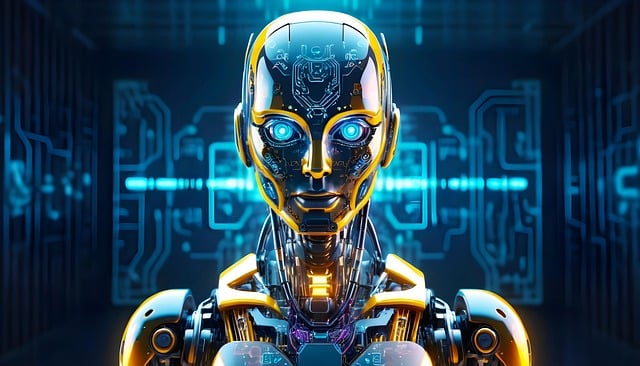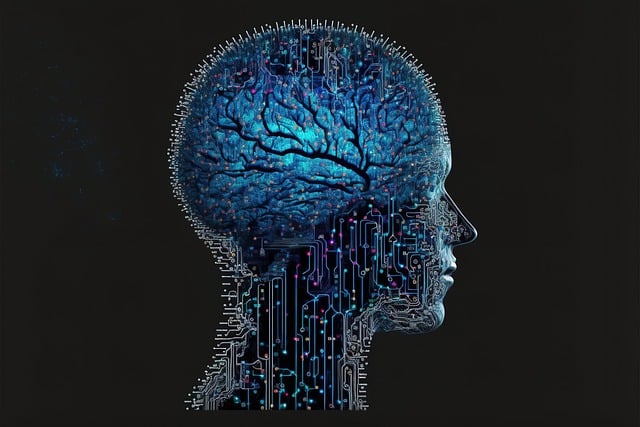
Artificial Intelligence (AI) is revolutionizing our world, transforming industries, and redefining the boundaries of technology. But what exactly is AI, and how does it work? This AI guide will explore the different types of AI, its applications across various sectors, recent advancements, ethical considerations, and future implications.
Key Takeaways:
- AI is software that learns patterns from data to make predictions, generate outputs, or support decisions.
- Most real-world AI today is “narrow” (task-specific), not human-level intelligence.
- The biggest value comes from applied use cases (healthcare, finance, education, operations) plus guardrails (privacy, bias, accountability).
- If you’re new, start by learning core concepts, then practice with small projects and real workflows.
Everything I’ve shared here—and more—is in my book, available on Amazon. Click the link if you’re ready to take the next step.
AI Guide: Definition of AI
Artificial Intelligence (AI) refers to the development of machines capable of performing tasks typically requiring human intelligence. These tasks include learning, reasoning, problem-solving, perception, and language understanding. Traditional computer programming involves providing specific instructions for each task, while AI systems learn from data and improve over time. This distinction is crucial because it highlights AI’s ability to adapt and evolve, making it a powerful tool across many applications.
Why AI “Works” in Practice
Most modern AI works by learning patterns from examples. Instead of being told every rule, a model is trained on many samples (text, images, numbers, behavior logs), then learns statistical relationships it can reuse on new inputs. In everyday terms, AI often does one or more of these jobs: classify (is this spam?), predict (what’s likely next?), recommend (what should you watch?), detect (is this fraud?), or generate (draft text, summarize, create images).
AI Guide on Types

Not all AI is created equal. Some systems only react, others learn from experience, and a few concepts are still more science fiction than product—so knowing the “type” tells you what the AI can realistically do (and what it can’t).
Types at a Glance
- Reactive machines: respond to inputs, no learning over time
- Limited memory: use recent or historical data to improve decisions
- Theory of mind (in development): designed to interpret emotions and social context
- Self-aware (theoretical): consciousness and self-awareness (not available today)
Reactive Machines
Reactive machines are the most basic form of AI, designed to respond to specific inputs with pre-programmed outputs. They cannot learn from past experiences. A classic example is IBM’s Deep Blue chess computer, which could analyze countless possible moves but could not improve its strategy over time.
Limited Memory AI
Limited memory AI systems can use historical data to inform current decisions. This type of AI is prevalent in autonomous vehicles, where systems use historical data to navigate and make real-time decisions to improve safety and efficiency. For instance, Tesla’s self-driving cars continuously learn from each journey, enhancing their ability to handle complex driving scenarios.
Theory of Mind AI
Theory of Mind AI refers to systems that can understand human emotions and social interactions. These AI systems aim to model human thoughts and feelings, leading to more empathetic and socially aware interactions. Although still in development, such AI could revolutionize customer service and personal assistants by making them more responsive to human needs and emotions.
Self-aware AI
Self-aware AI represents the most advanced stage, where machines possess consciousness and self-awareness. While this remains largely theoretical, the potential for self-aware AI raises significant ethical and philosophical questions. Researchers are exploring these concepts, but practical applications still need refinement.
A More Useful Modern Classification For Beginners
Many readers find it easier to understand AI by grouping it into what you’ll actually encounter:
- Machine Learning (ML): models learn from data to predict or classify (spam detection, credit scoring)
- Deep Learning: a subset of ML that powers stronger vision and language systems (speech recognition, image analysis)
- Natural Language Processing (NLP): working with human language (chatbots, summarizers, search)
- Computer Vision: understanding images and video (medical imaging, quality inspection)
- Generative AI: creates new content (text, images, code) based on patterns learned during training
AI Guide on Applications
The fastest way to understand AI is to see where it’s already doing real work. From diagnosis support to fraud detection to personalized learning, AI shows up as a practical system that speeds decisions, spots patterns humans miss, and scales expertise.

Practical “What AI Is Doing” Lens
Across industries, AI typically shows up in a few repeatable roles:
- Decision support: helps humans choose faster with better data
- Automation: reduces manual steps (classification, routing, drafting)
- Detection: spots anomalies (fraud, defects, security threats)
- Personalization: adapts content or recommendations per user
- Forecasting: predicts outcomes (demand, risk, churn)
Healthcare
AI is making significant strides in healthcare, improving diagnostics, personalized medicine, and drug discovery. Machine learning algorithms analyze vast amounts of medical data to predict disease outbreaks and suggest treatment options. For example, IBM’s Watson can diagnose cancer more accurately than human doctors by analyzing medical journals, patient records, and clinical trial data.
Finance
In finance, AI handles fraud detection, risk assessment, and algorithmic trading. AI-powered chatbots enhance customer service by providing personalized recommendations and handling transactions. According to a Deloitte report, AI can reduce financial fraud by up to 40% by detecting unusual transaction patterns.
Transportation
Autonomous vehicles are a prime example of AI in transportation. AI algorithms enable self-driving cars to perceive their surroundings, make decisions, and navigate safely. Waymo, Google’s autonomous vehicle project, has logged millions of miles on public roads, showcasing AI’s potential to reduce accidents and improve traffic efficiency.
Manufacturing
AI-driven automation and predictive maintenance are revolutionizing manufacturing. Intelligent robots perform complex tasks with precision and speed, increasing productivity. Predictive maintenance uses AI to analyze sensor data, predicting equipment failures before they occur and reducing downtime. General Electric has implemented AI-driven maintenance in its factories, resulting in significant cost savings.
Education
AI is transforming education by personalizing learning experiences. Adaptive learning platforms use AI algorithms to tailor educational content to individual student needs, improving engagement and outcomes. AI-powered virtual tutors provide personalized feedback and support, making education more accessible and practical. Khan Academy and Duolingo are examples of educational platforms leveraging AI to enhance learning.
AI In Everyday Life Examples
AI also shows up quietly in daily routines, often without being labeled “AI”: spam filters, search ranking, map routing, photo tagging, autocorrect, translation, fraud alerts, and recommendation engines on streaming and shopping sites. These systems rely on pattern recognition and prediction to make fast, useful decisions at scale.
AI Guide on Advancements

AI didn’t suddenly get “smart” overnight—specific breakthroughs made it better at vision, language, prediction, and real-time decision-making. These advancements explain why AI tools feel dramatically more capable now than they did even a few years ago.
Deep Learning
Deep learning, a subset of machine learning, involves neural networks with multiple layers. This approach has revolutionized image, speech, and natural language processing. Google’s DeepMind and OpenAI’s GPT-3 are prime examples of deep learning applications pushing the boundaries of what AI can achieve.
Explainable AI
As AI systems become more complex, the need for transparency grows. Explainable AI aims to make AI decision-making processes understandable to humans, ensuring accountability and building trust. Researchers are developing methods to make AI systems more transparent, which is crucial for sectors like healthcare and finance, where decision-making impacts lives.
Reinforcement Learning
Reinforcement learning trains AI through rewards and punishments to optimize decision-making. This method has led to AI systems that can outperform humans in complex games like Go and Dota 2. Reinforcement learning is also being applied in robotics and autonomous systems, enhancing their ability to learn and adapt.
Edge AI
Edge AI involves deploying AI algorithms on edge devices like smartphones and IoT devices, reducing latency and enhancing privacy by processing data locally. This approach is particularly beneficial for applications that require real-time processing and decision-making, such as smart home devices and industrial automation systems.
What’s Actually Changed Recently
A major shift in the last few years is the rise of large language models (LLMs) and practical generative AI systems that can draft, summarize, translate, and assist with coding and analysis. This doesn’t mean AI “understands” like a human, but it does mean AI can produce highly useful outputs when guided well, grounded in reliable sources, and used with clear review steps.
AI Guide on Ethical Considerations
AI doesn’t just make decisions faster—it decides how people get treated. The moment you use AI on real data, you inherit real-world risks: privacy exposure, biased outcomes, and accountability gaps. Understanding the ethics isn’t a “nice-to-have.” It’s how you keep AI useful, fair, and safe when the stakes are human.

Privacy and Data Security
AI’s ability to access and analyze vast amounts of data raises significant privacy and security concerns. It is crucial to ensure that AI systems handle data responsibly and protect user privacy. Regulations like the GDPR in Europe aim to address these issues by setting data protection standards.
Bias and Fairness
Preventing biases in AI algorithms is essential to ensure fair and equitable outcomes. Biased AI systems can perpetuate discrimination, affecting hiring and law enforcement. Researchers and policymakers are developing guidelines and tools to detect and mitigate biases in AI systems.
Accountability: Who’s Responsible When AI Is Wrong?
A practical ethical issue is accountability. If an AI system denies a loan, flags a transaction, or recommends a medical next step, someone must be responsible for validating outcomes, handling appeals, and auditing errors. The safest posture is to treat AI as decision support unless the use case has been rigorously tested, monitored, and governed.
AI Guide on Job Displacement
AI’s impact on employment is a significant concern. While AI can increase efficiency and create new job opportunities, it can also displace workers. However, the existence of reskilling and upskilling programs empowers workers to transition to new roles in an AI-driven economy. According to a McKinsey report, up to 375 million workers may need to switch occupations by 2030 due to automation (Illanes et al., 2018).
Practical “How To Prepare” For AI-Driven Work
For most people, the near-term shift is task-level automation, not total job replacement. The most durable approach is to build skills that pair well with AI: problem framing, domain expertise, quality control, communication, and the ability to use AI tools responsibly. If your role includes repetitive writing, sorting, scheduling, reporting, or first-draft work, you can often “AI-proof” your position by becoming the person who designs the workflow and checks output quality.
How To Start Learning AI: A Beginner’s Path
If you’re starting from zero, you don’t need to jump straight into heavy math or advanced coding. A simple progression looks like this:
- Build the mental model: learn the difference between AI, machine learning, and deep learning, plus what training data means.
- Learn the core use cases: classification, prediction, recommendation, and generation.
- Practice with real tools: use AI for summarizing, drafting, and analysis, then develop a habit of verifying outputs.
- Add foundations (optional but powerful): basic statistics, data literacy, and Python fundamentals.
- Do small projects: analyze a dataset, build a simple classifier, or automate a workflow.
- Learn responsible use: privacy, bias, security, and when not to use AI.
AI Guide on Future Implications
Continued Advancements
AI is poised to evolve as advances in machine learning, natural language processing, and robotics unfold. These developments will further integrate AI into our daily lives, enhancing productivity and creating new opportunities.
Regulation and Ethical AI
As AI integrates into society, the need for robust ethical guidelines and regulations becomes increasingly critical. Policymakers and industry leaders must work together to ensure AI is responsibly developed and deployed, effectively addressing privacy, bias, and job displacement. This emphasis on ethical guidelines should reassure the audience about the responsible development of AI.
AI Guide on Potential Transformations
AI has the potential to transform industries and daily life in unprecedented ways. From healthcare to education, finance to transportation, AI’s impact will continue to grow, driving innovation and progress. Staying informed and engaged with AI developments will be crucial to harnessing its full potential.
Artificial Intelligence is not just a technological advancement; it’s a transformative force reshaping our world. You can better navigate and leverage this powerful technology by understanding its various aspects, applications, advancements, and ethical considerations.
Final Thoughts
This AI guide is designed to give you a clear mental model of artificial intelligence—not just what it is, but how it shows up in real systems, real decisions, and real consequences. AI isn’t something you “keep up with” by chasing tools. It’s something you understand at a foundational level so you can evaluate claims, spot limitations, and use it intentionally as it continues to evolve.
If this overview helped you think more clearly about AI, the next step is depth and structure. My books expand on these ideas with practical frameworks, grounded explanations, and real-world context—without hype or technical overload. You can find them all on my Amazon Author page when you’re ready to continue learning with purpose.
Frequently Asked Questions
Artificial intelligence is when computers do tasks that usually require human intelligence, like understanding language, spotting patterns, learning from data, and making decisions. Unlike hard-coded programs, AI can improve over time.
Beginner AI guides often describe four types: reactive (no memory), limited-memory (use recent data), and two mostly theoretical forms: theory of mind and self-aware AI. You’ll also see AI grouped by approach, like machine learning, deep learning, NLP, and computer vision.
AI already runs in the background of daily life: recommendations on streaming and shopping sites, spam filters, phone assistants, navigation, fraud checks, and photo tagging all rely on pattern recognition and prediction.
If you’re new to AI, start with the fundamentals, build basic math and Python skills, then learn through beginner courses and small projects. Platforms like Coursera, DataCamp, Google, and Intuit offer structured paths: set a goal, learn the basics, try tools, and practice on real problems.
AI will automate repetitive work, but research predicts both displacement and new jobs, not a total takeover. The bigger shift is how people work: roles that blend human judgment, creativity, and AI will grow, so reskilling matters.
AI excels at pattern-based work like summarizing, classifying, forecasting, and drafting. But it can hallucinate, reflect bias, and make high-stakes errors without oversight, so verification and guardrails matter.
Machine learning is a subset of AI. AI is the broader goal, while machine learning is how systems learn patterns from data instead of relying on hand-coded rules.

Florence De Borja is a freelance writer, content strategist, and author with 14+ years of writing experience and a 15-year background in IT and software development. She creates clear, practical content on AI, SaaS, business, digital marketing, real estate, and wellness, with a focus on helping freelancers use AI to work calmer and scale smarter. On her blog, AI Freelancer, she shares systems, workflows, and AI-powered strategies for building a sustainable solo business.


Pingback: Artificial Intelligence for Writers and Creatives - The AI Freelancer